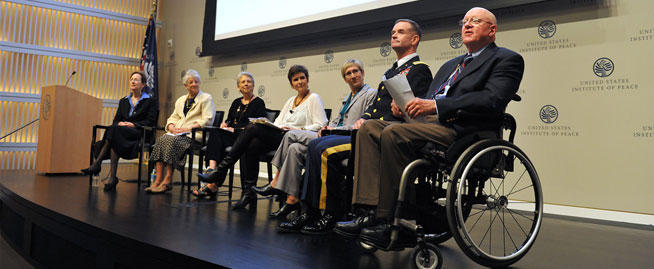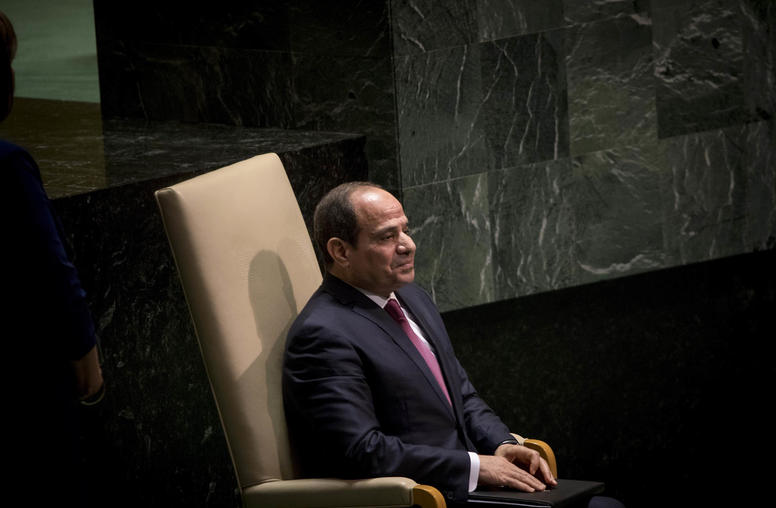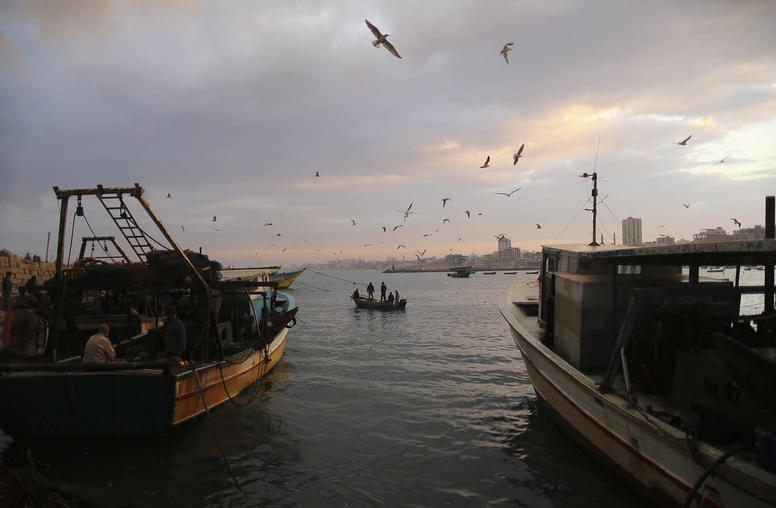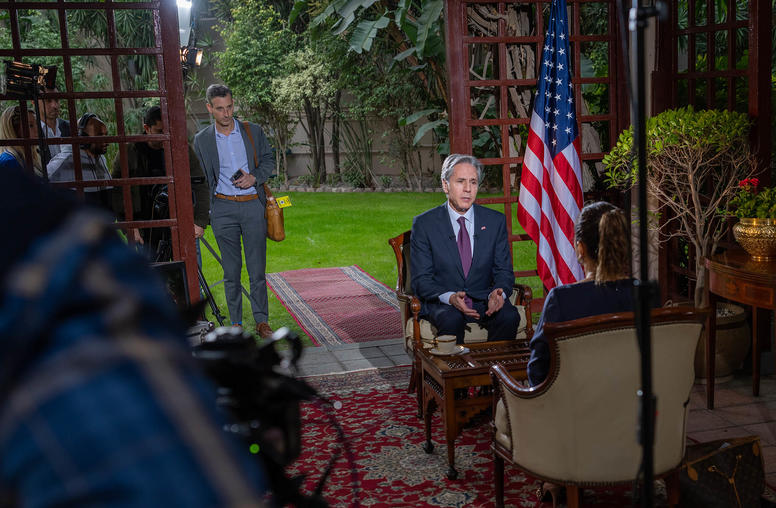Trauma Resilience as a Keystone to Building the Rule of Law in Conflict-Affected Societies
The United States Institute of Peace held a public event on trauma and its effects on rule of law in conflict-affected societies. This two-panel event examined trauma from the panelists' experiences in post-conflict zones, shared new and innovative approaches to building trauma resilience, and focused on Libya as a case study to examine the trauma phenomenon among the general population.
Read the event coverage, Trauma Resilience as a Keystone to Building the Rule of Law in Conflict-Affected Societies.

Trauma—brought about as a result of conflict or from living under an oppressive regime—affects a significant portion of the population in states in transition. Yet, the stress and trauma on individuals, their communities and practitioners, and its potentially negative impacts, are often ignored or misunderstood. Prolonged conflict may result in a vicious cycle where violence becomes the perceived norm and creates a society where crimes and violence are more likely to happen.
After conflict, a high priority for post-conflict countries is to reform the existing justice and security system. However, it is critical that those promoting the rule of law in conflict-affected countries strive to understand the impact of trauma on their work and proceed in a trauma-sensitive manner. The United States Institute of Peace believes that it is only by empowering post-conflict communities and practitioners in the field with the knowledge to diffuse the legacy of trauma will we be able to break the cycle of violence and build a better path to justice and security.
The United States Institute of Peace (USIP) held a public event on "Trauma Resilience as a Keystone to Building the Rule of Law in Conflict-Affected Societies." The first panel examined the phenomenon of trauma from the panelists' experiences in post-conflict zones and the ways in which it affects initiatives to promote justice, security, and the rule of law. The panelists shared how their experiences became an impetus for the development of new and innovative approaches to building trauma resilience—the finding of pre-existing points of local resilience and building on those to ensure culturally and contextually appropriate responses to trauma.
During the course of USIP's recent work in Libya, both high-level Libyan officials and the community identified trauma as a major issue affecting and hindering the establishment of rule of law. The second panel focused on Libya as a case study for trauma issues and examined the phenomenon among the general population as well as those who actively participated in the recent revolution. It looked at the direct impact of trauma on current and future efforts to build justice, security, and the rule of law and what is needed to build trauma resilience in the Libyan context.
9:00 a.m.-11:00 a.m. - Understanding Trauma and its Impacts on Building the Rule of Law in Transitional States & Innovative Approaches to Fostering Trauma Resilience
- Elaine Zook Barge, panelist
Director, Strategies for Trauma Awareness and Resilience (STAR)
Eastern Mennonite University - Louise Diamond, Ph.D., panelist
Founder and Director, Global Systems Initiatives
Co-Founder, The Institute for Multi-Track Diplomacy - COL Walter E. Piatt, panelist
Commandant, U. S. Army Infantry School, U. S. Army Maneuver Center of Excellence, Fort Benning, Georgia - Beatrice Pouligny, Ph.D., panelist
Former USIP grantee and co-editor of grant book "After Mass Crimes: Rebuilding States and Communities"
Visiting Faculty at Edmund A. Walsh School of Foreign Service
Georgetown University - Elizabeth Stanley, Ph.D., panelist
Associate Professor of Security Studies at Edmund A. Walsh School of Foreign Service
Georgetown University
Founder of the Mind Fitness Training Institute - Colette Rausch, moderator
Director, Rule of Law Center
United States Institute of Peace - John Lancaster, welcome address
Board Member
United States Institute of Peace
11:30 a.m.-1:30 p.m. - Trauma and its Impacts on Building the Rule of Law in Libya
- Wail A Y Nagem, panelist
Deputy Minister of Justice
Government of Libya - Essam Gheriani, panelist
Psychologist and head of Mental Health Cluster (Benghazi) - Najla Elmangoush, panelist
Program Specialist
United States Institute of Peace - Matthew Stanford, Ph.D., panelist
Professor of Psychology, Neuroscience, and Biomedical Studies
Baylor University - Vivienne O'Connor, moderator
Senior Rule of Law Program Officer
United States Institute of Peace - Read the bios of all the presenters
Photo Slideshow
Explore Further
- View a video recording of the event: Panel One & Panel Two
- Read the News Feature about the event.
- Read about USIP's efforts in Libya
- Read the Olive Branch blog post, "On the Ground in Libya: How PTSD Affects Rule of Law," by Vivienne O'Connor
- Read the In the Field feature, "Window Shopping: How a Wedding Gown Frames the Libyan Future," by Colette Rausch
- Read the Special Report, "Trauma and Transitional Justice in Divided Societies," by Judy Barsalou
- Read the News Feature, "Debating Federalism in Libya," by Jason Gluck
Related Academy Courses



